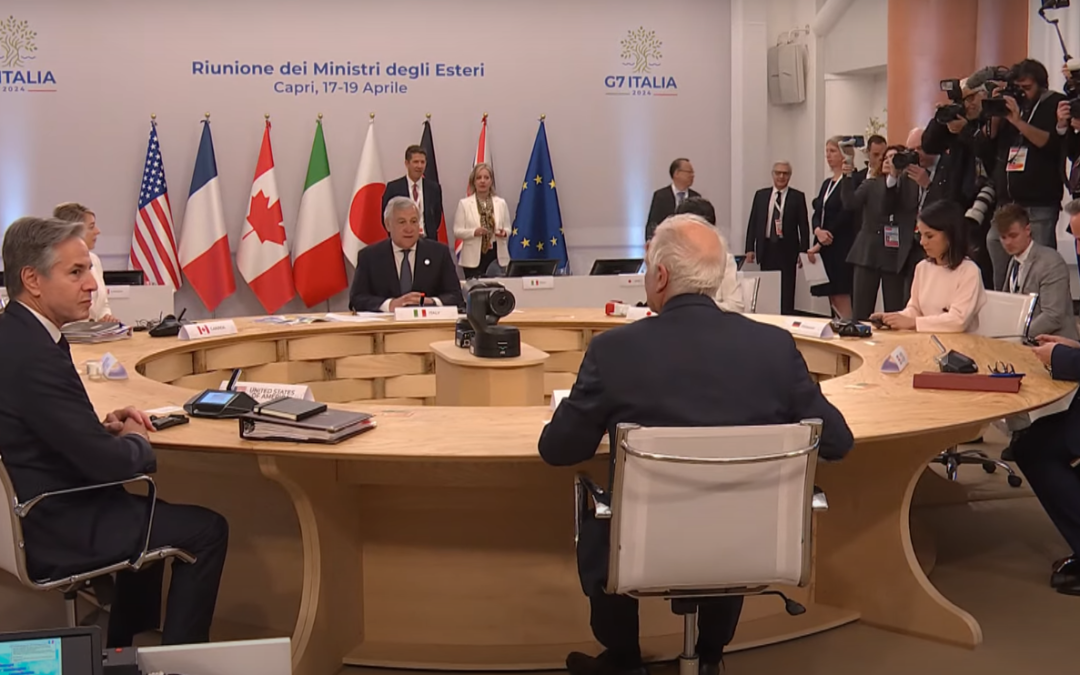Civil7 organizations call on G7 governments to promote systemic, transformative and generative changes in international politics through the multilateral system.
Rome, April 19, 2024 – The meeting of Foreign Ministers of G7 countries, hosted by Italy in the year of its presidency that will see the leaders’ summit in June, concludes today in Capri. Civil society organizations gathered in the official “Civil 7” engagement group on occasion addressed collective position papers to foreign ministers with important policy demands.
The increasingly confrontational and dangerous international context we are experiencing requires an unprecedented effort to reestablish a multilateral balancing system that promotes paths of peace and international law, not drifts toward more war.
“The world is experiencing an ominous series of interconnected crises-conflict, climate, hunger-whose structural causes remain unresolved,” the Civil 7 organizations write in the document. “The G7 can be part of the problem, if it unilaterally promotes the interests of the most developed economies, or part of the solution if it defends human rights and the common interests of humanity and the planet for a more peaceful, just and secure future.”
The fragility of global peace, the persistence of armed conflicts and the increased risk of nuclear weapons use require the utmost urgency and concrete actions. A number of critical structural and systemic challenges are also being addressed, with large population groups such as women, children, youth and the most marginalized bearing the brunt of these crises. The inability of states to mitigate climate impacts is leading to hunger, starvation and famine. In multiple protracted and often forgotten crises, the prolonged lack of political commitment to implementing sustainable solutions to address the causes of humanitarian needs is leading people to make terrible choices simply to survive.
The C7 organizations therefore urged G7 foreign ministers and governments to promote systemic, transformative and generative changes in international policies through the multilateral system. The G7 can play a useful role in building consensus on the accelerated action needed to prevent the multi-level crisis from reaching catastrophic levels and to advance the sustainable development agenda.
In the document (which can be read in full at this link), therefore, specific requests were made to the G7 foreign ministers that go in a proactive and ready direction to find compromise and maintain dialogue despite strategic differences, highlighting four main areas for action: Peace, Common Security and Nuclear Disarmament; Humanitarian Principle-Based Assistance; Food Justice and Food Systems Transformation; and Human Mobility and Migration
Press Release of the C7
Here below the press release in French e in Spanish
Photo: © G7 YouTube

